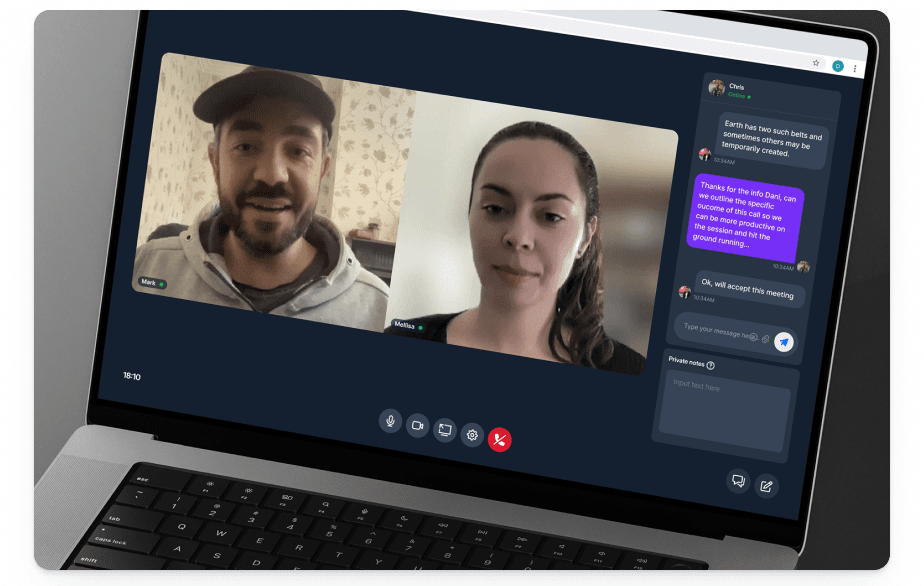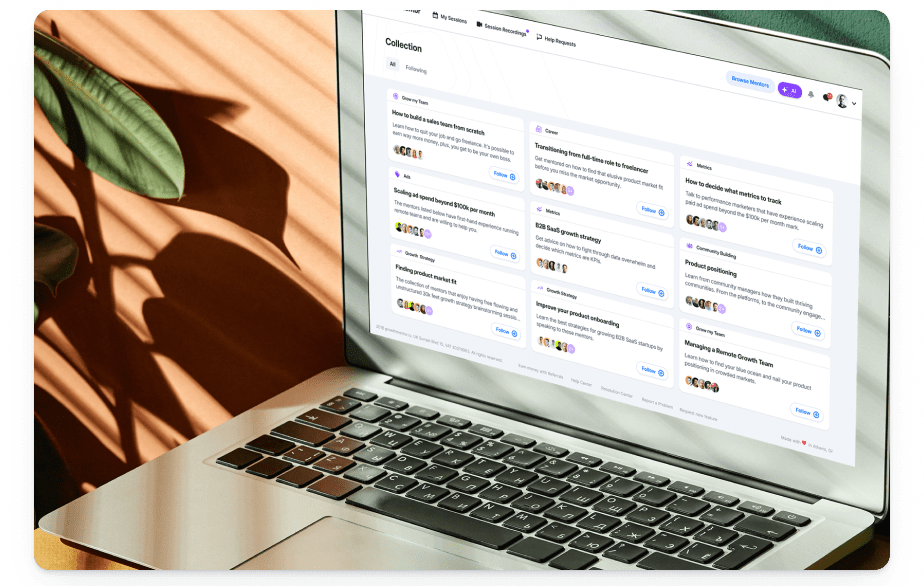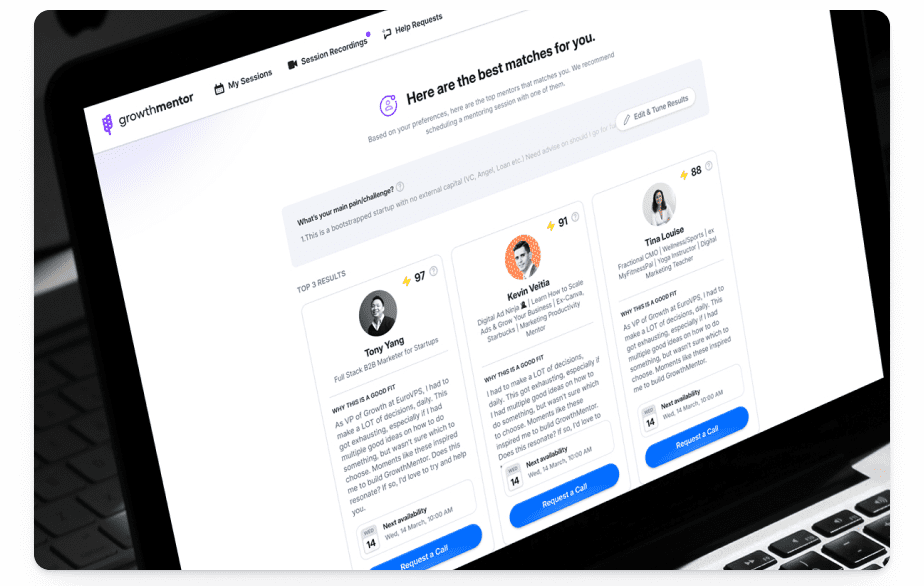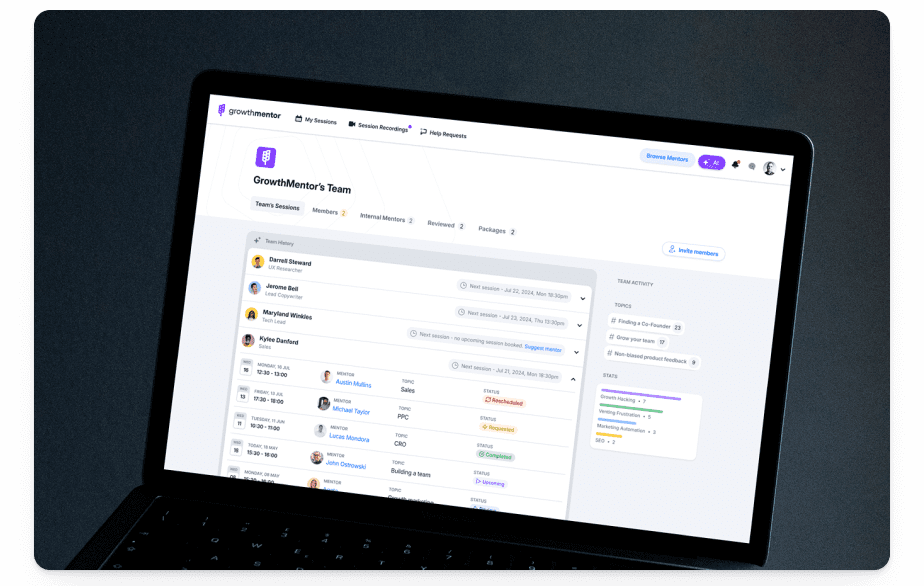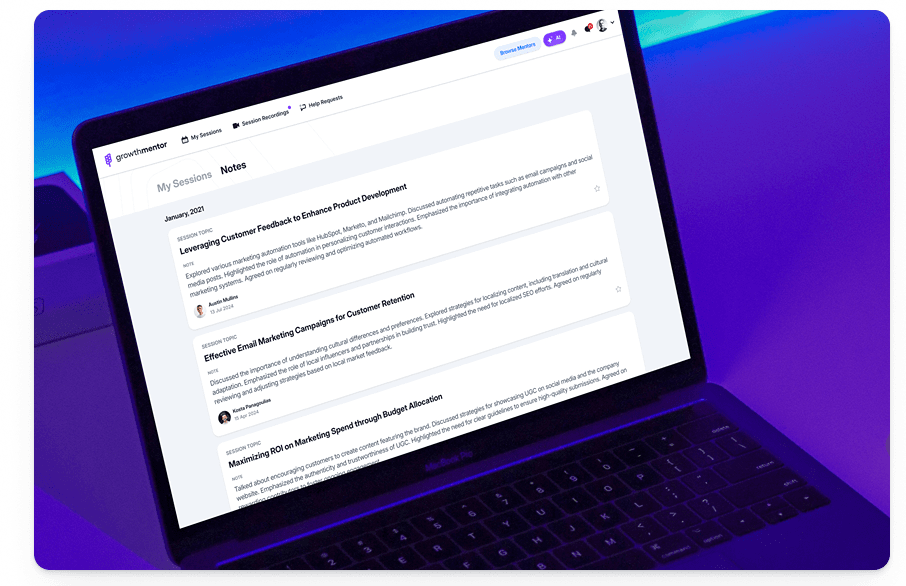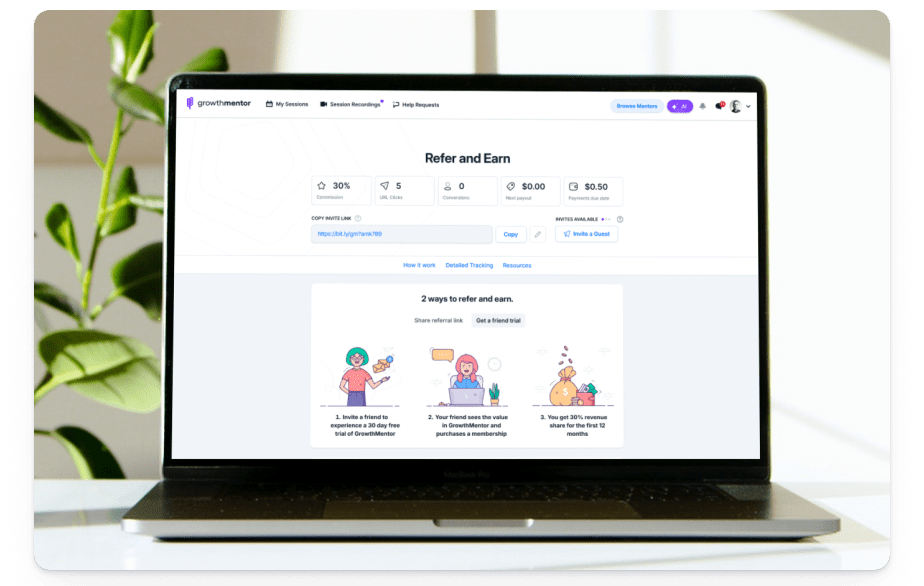“It’s insane how I’m able to hop on Zoom calls with hundreds of experts that work at some seriously impressive companies!”


The easiest way to find product analytics mentors
Connect with the right people and get unstuck
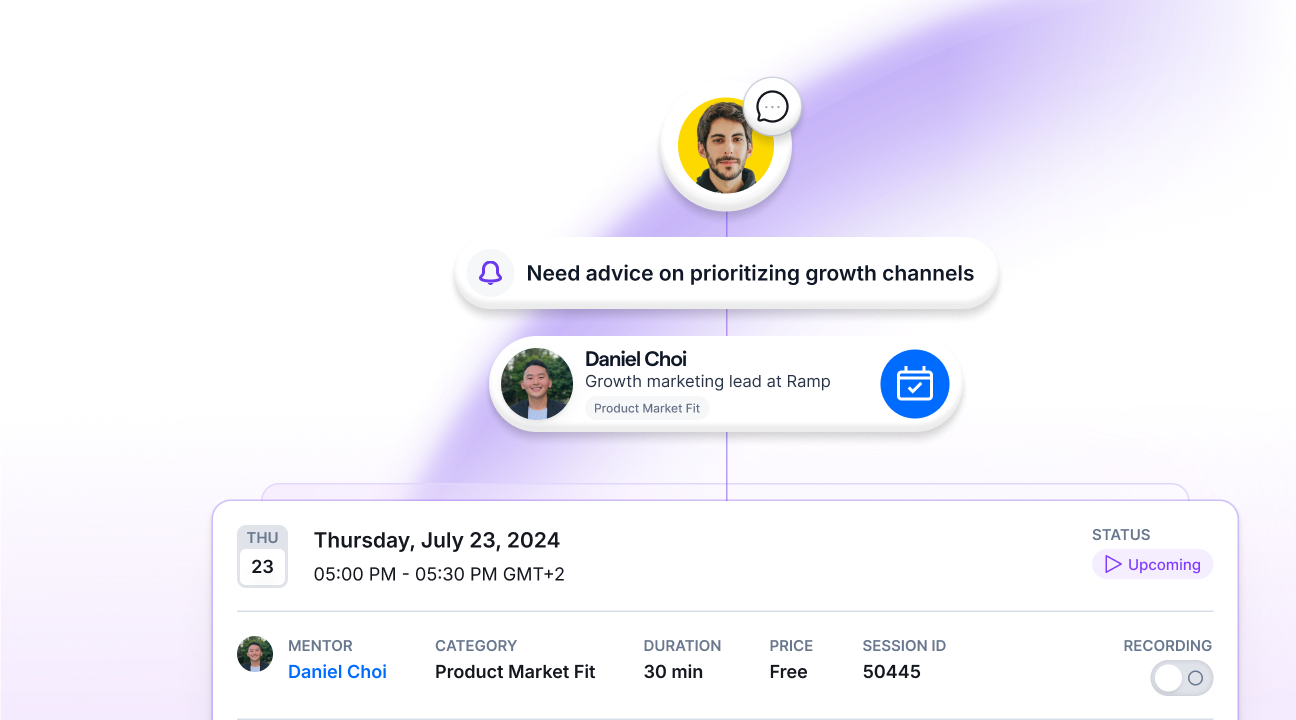

Find your mentor

Book a Call

Get unstuck
Product analytics mentors at your fingertips
What would you like to get better at today?
Just a few of the topics being discussed over casual conversations on GrowthMentor
Book Zoom calls with vetted growth mentors and get personalized advice that's relevant to your situation.
What should our tech stack look like?
How can we determine customer LTV?
What is our a-ha moment?
How do we determine our habit moment?
How should we segment our users?
How can we conduct cohort analysis?
How should we measure feature adoption?
What KPIs should our product team focus on?
How can we automate reporting?
How do we visualize our data effectively?
How do we analyze our churn reasons?
How do we implement event tracking?
When should we A/B test feature releases?
How can we determine ROI of a new feature?
All your questions about mentorship, answered
How can a product analytics mentor help me?
The only way you can determine the success of a product is by the numbers. If you don’t have product metrics on hand, you’re guessing at the impact, success rates and ROI of releasing new features.
But very few product-driven companies start out with an advanced product analytics tech stack.
Instead, analytics are cobbled together over time, built in-house when it’s convenient, bought and integrated when in-house is too expensive or time consuming, and DIY-rigged by individual employees when they can’t find the information they need.
Good product analytics are about having the right data accessible when you need it. An early stage startup may only need to track a handful of metrics at time.
So the primary question becomes: what data do you actually need?
Because it’s only partially about the tools you should use. Understanding how to make calls about the data you need is a far more important element of product analytics.
And that’s where a product analytics mentor can help you. They’ll examine your current analytics set-up, assess your company’s maturity level, product complexity, and available resources, then help you determine the exact metrics you need to track to make your product development process successful.
Since a mentor takes a “done with you” approach, your mentor will explain their thought process every step of the way, helping you understand the “why” and “how” behind data analytics rather than just the “what.”
So you can learn the product analytics mindset and have confidence in your future decisions.
When should I talk to a product analytics mentor?
While this is one of those areas that most companies would benefit from talking to a mentor early, we have to be realistic. Most folks aren’t going to get their data analytics act in order until it’s actively interfering with their product work and decision-making process.
Thus, you’ll likely want to talk to a product analytics mentor when:
- You’re a founder who’s starting to grow your product function, especially if you’re a solo-founder and have “gotten by” without detailed analytics
- You’re a new hire on a product team and the current analytics tech stack isn’t providing the information you need
- You’ve discovered it’s hard to make decisions without data and analytics easily accessible
- You want to build a company culture of data-driven decision making
- You’re sick of feeling like your analytics tech stack is a Frankenstein’s monster of disjointed components
A product analytics mentor can help smooth the path to change by providing their advice and accounts of their firsthand experience. Which means you can start making changes with far more confidence in your decisions than if you tried to do it all on your own.
Why should I talk to a mentor rather than just take a course?
Courses and blog articles can teach you workflows for specific analytics platforms. But, they won’t answer questions like: “do we need to track this yet?”
For that, you need someone with experience.
Our mentors aren’t fluffy theorists. They’ve been in the trenches and been hands-on with the work. They’ve seen fantastic successes, spectacular failures, and everything in-between. They know what works and what doesn’t.
So, you could spend hundreds of hours reading articles, taking courses, and blindly guessing at what you need and don’t need to track.
Or you could shortcut all the frustration by talking to a mentor who has walked the path before. And thus get the confidence your product analytics strategy is on the right track.
Why should I trust GrowthMentor’s mentors?
Excellent question. After all, the “mentorship” world is full of high-priced consultants, armchair analysts who have never done the work themselves, and outright snake-oil salesmen looking to make a quick buck.
But, there are plenty of experts out there who want to share their experience and knowledge. At GrowthMentor, we’re lucky to have 700+ of those experts.
The secret comes from our vetting process. We not only double-vet all of our mentors so only the top 3% makes it through our process, we also look at their soft skills. Because no one wants a mentor who’s a snob or a jerk.
On top of it, 85% of our mentors don’t charge an extra fee. Why?
The short answer: Because they want to help people.
The long answer is because…
- They enjoy sharing their knowledge
- They learn from their mentees
- They want to be a “force for good” in the business world
- They want to pay it forward
But don’t just trust our word on it. Hear from the mentors themselves.
Join the most uplifting community on the internet
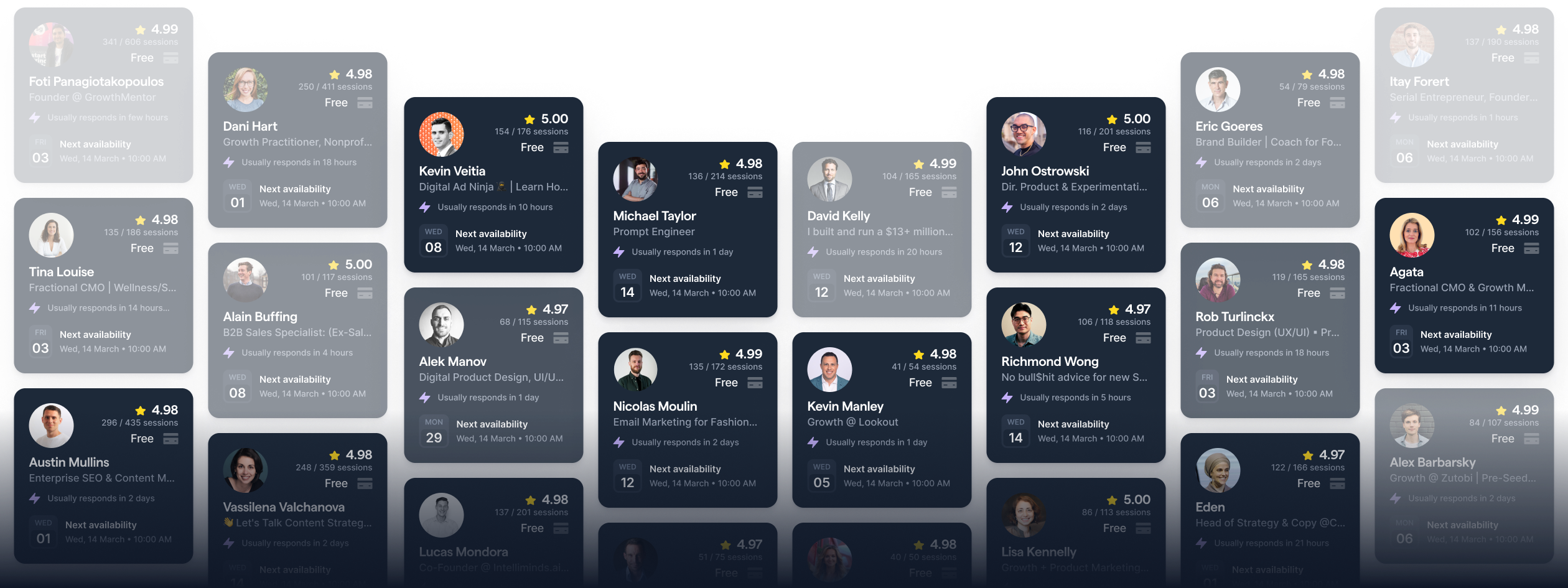
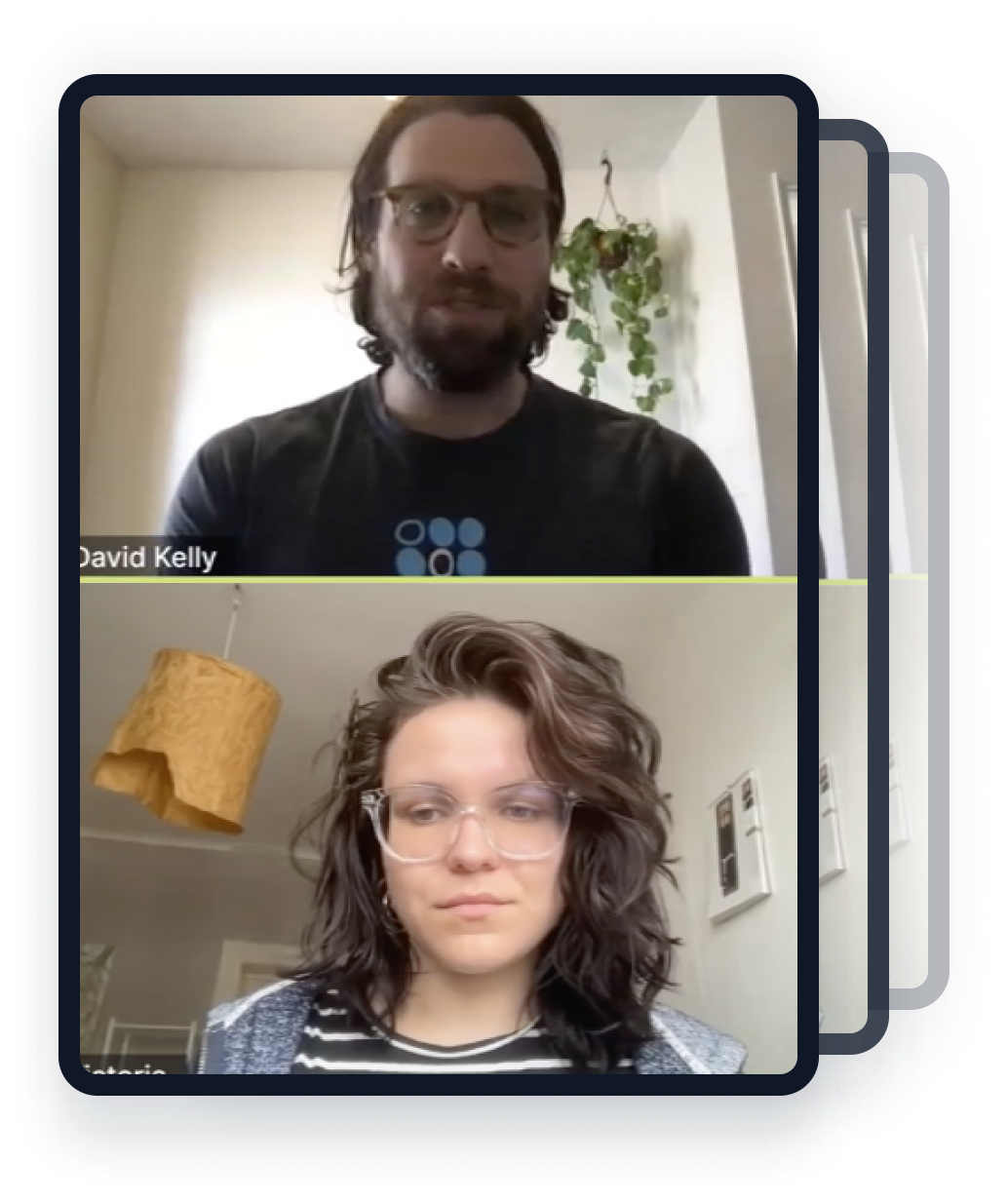










.jpg)
